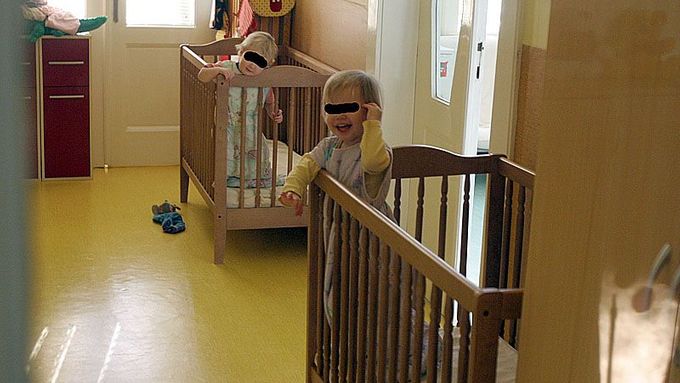Praha - Minister of Labour and Social Affairs Petr Nečas is planning radical changes in children in need welfare. Institutional care is to be reduced and foster care is to be preferred.
This means that up to 75 per cent of the children currently placed in social care homes could live in their own or substitute families in the future.
Labour ministry was forced to make this change by the current situation when the children in need welfare is somewhat dropping behind the rest of Europe. "Child protection does not reach the developed countries' standard," Nečas admits saying that the changes could be made within several years.
A large number of children in social care homes, a large number of children taken away from their families, high fragmentation of children in need welfare. These are the three key difficulties of the existing children in need welfare according to Minister Nečas.
To Europe with less institutions
Each year, about 2,000 children are placed in social care homes. About 8,000 are sent there by court. On the other hand, the number of newly fostered children is hardly 1,000 a year.
Within the past years, a slight increase in the number of fostered children has been noted, but the ministry is more ambitious. It wants to reduce the current children in need welfare and transform it into a modern European one.
"By the end of the year we want to have the system change ready so that we join standard developed countries and reduce the number of children in social care homes," Minister Nečas says.
The most visible change should concern foster parent support. The amount of foster parents should significantly grow and they should professionalize, too.
Professional mother, professional father
"We want to expand foster care and implement the professional foster care system," Vice PM Nečas explains. "For instance, one of the pair could have it as his or her job. There would be nothing wrong with this," he adds.
However, Nečas admits that reality can significantly deviate from his plans. "It will take a long time, such changes will take years. Let's not entertain false hopes: there is no fast and efficient solution," Nečas claims.
In spite of this he thinks that provided the system is set up well and there is willingness in foster families, the ratio of children in social care homes to those in substitute families can grow in favour of the latter.
"The more foster families there are, the less children are in institutions. Ideally, 75 per cent of the children could be in foster families."
Even though the ministry indicated the way it imagines the new children in need welfare, the transformation of the system itself is only beginning.
Key to success: unification
Besides preparing favourable environment for foster families, experts must also negotiate on legislature arrangements so that the current fragmentation of the welfare provision is eliminated.
The trouble is that the welfare is in the jurisdiction of five ministries.
"The current fragmentation does not work. Resortism does not influence the welfare provision only, it also has an impact on the development of the children themselves," the minister thinks.
Therefore, the first step is to be the establishment of an inter-ministerial coordination group consisting of the officers of the Ministries of Labour and Social Affairs, of the Interior, of Health Care, of Education and of Justice.
The group should for instance adjust and unify the way the ministries provide welfare services and their various criteria for employee selection.
The coordination group should also reach a verdict as to what body should cover the whole new system. "I am convinced that a significant part of the agenda should be handled by a single ministry. I think it should be the Ministry of Labour and Social Affairs," Nečas says.







